Environmental Awareness

What are the most effective ways to promote environmental awareness ?
Promoting environmental awareness is crucial for the sustainable development of our planet. Effective ways to raise awareness about environmental issues include education and training through school curriculums, community workshops, and online courses; media and public outreach via social media campaigns, public service announcements, and documentaries; corporate responsibility initiatives such as green marketing, CSR programs, and partnerships with NGOs; and government policies and initiatives including environmental legislation, eco-friendly infrastructure, and international cooperation. By implementing these strategies, we can create a more informed and engaged global community committed to protecting our environment for future generations.

What are some successful examples of environmental awareness programs around the world ?
Successful Environmental Awareness Programs Around the World: 1. **The Green Belt Movement (Kenya)** - focuses on environmental conservation through tree planting, empowering women, and promoting sustainable development. Over 51 million trees have been planted since 1977. 2. **Eco-Schools Programme (Europe)** - engages schools in promoting environmental sustainability among students. Over 10,000 schools participate in the program across Europe. 3. **Sea Shepherd Conservation Society (Global)** - protects marine life through direct action campaigns against illegal fishing and poaching. Successfully intercepted numerous pirate fishing vessels and raised global awareness about ocean conservation issues. 4. **Adopt-a-Minefield Programme (Cambodia)** - engages local communities to clear landmines and unexploded ordnance from rural areas. Over 1 million square meters of land have been cleared of landmines, providing safe access to agricultural lands for local communities. 5. **Recycle Now (UK)** - educates people about the benefits of recycling and reduces waste through a national recycling campaign. Recycling rates in the UK have increased significantly since the campaign's launch, diverting millions of tons of waste from landfills.

What is the role of education in promoting environmental awareness and action ?
Education plays a crucial role in promoting environmental awareness and action by providing knowledge about the environment, developing environmental values, encouraging active engagement, teaching problem-solving skills, and providing opportunities for leadership development.
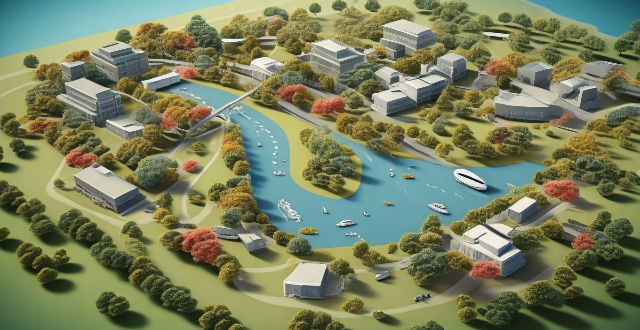
How does education contribute to raising environmental awareness among future generations ?
Education is crucial for raising environmental awareness among future generations, as it enhances knowledge, develops values, and promotes action. Incorporating environmental education into the curriculum empowers students with the necessary tools to understand and address complex challenges facing our planet. By fostering a deeper appreciation for nature and cultivating a sense of responsibility towards preserving it, schools can play a significant role in nurturing eco-conscious citizens who are well-equipped to confront and overcome environmental challenges.

How can ecological protection areas contribute to environmental education and awareness ?
Ecological protection areas are crucial for both biodiversity conservation and environmental education. These areas offer hands-on learning experiences, interactive programs, sustainable practice promotion, community outreach, research efforts, and media publicity to raise awareness about the importance of preserving ecosystems. Through these initiatives, ecological protection areas can inspire individuals to adopt eco-friendly habits and contribute to global conservation efforts.
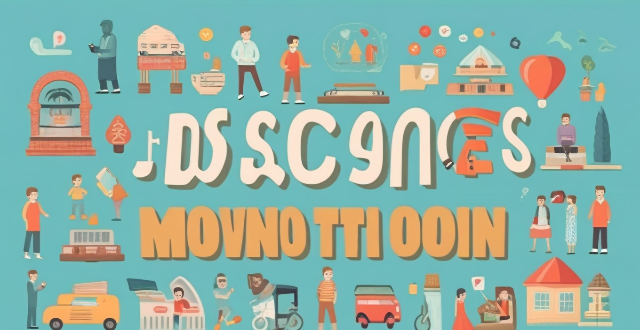
How has social media influenced environmental awareness campaigns ?
The text discusses how social media has revolutionized communication and information sharing, particularly in the context of environmental awareness campaigns. It outlines various ways in which social media has impacted these campaigns, including increased visibility, interactivity, accessibility, influence of celebrities and influencers, real-time updates, and crowdsourcing and fundraising opportunities. The text concludes that social media is an essential tool for promoting environmental causes and will likely continue to play a significant role in shaping our understanding of the environment and inspiring action.

What role do schools play in fostering environmental consciousness among students ?
Schools play a pivotal role in nurturing environmental awareness in students by integrating eco-themes into curriculum, organizing extracurricular activities, maintaining green infrastructure, engaging with the community, modeling sustainable behaviors, setting eco-friendly policies, running awareness campaigns, offering service learning opportunities, and implementing assessment and recognition programs. These efforts not only educate students about environmental issues but also empower them to take actionable steps toward preserving the planet.

What are some popular celebrity-led environmental initiatives ?
Celebrities have a significant influence on society and many of them use their platform to promote environmental causes. Here are some popular celebrity-led environmental initiatives: Leonardo DiCaprio's Earth Alliance supports indigenous peoples and communities in protecting their lands and resources. The organization focuses on funding grassroots organizations that work to protect biodiversity and combat climate change. Ellen DeGeneres has worked with the Natural Resources Defense Council (NRDC) to raise awareness about conservation and sustainability. The NRDC is one of the most influential environmental advocacy groups in the world, working on issues such as clean energy, oceans, wildlife, and more. Actress Shailene Woodley has been involved with Greenpeace, an international nonprofit organization that focuses on environmental issues such as climate change, deforestation, and overfishing. Woodley has participated in protests and campaigns to raise awareness about these issues. Musician Pharrell Williams collaborated with G-Star RAW to create Bionic Yarn, a fabric made from recycled ocean plastic. The project aims to reduce waste by transforming it into something useful while also raising awareness about ocean pollution. Emma Watson launched The Environment Age, a website dedicated to sharing information about environmental issues and inspiring readers to take action. The site covers topics such as climate change, pollution, animal welfare, and more.

How can governments implement policies to increase public awareness about environmental issues ?
Governments can increase public awareness about environmental issues by implementing a combination of educational initiatives, community involvement programs, collaborations with NGOs, technological innovations, and regulatory policies. These include integrating environmental education into the school curriculum, broadcasting public service announcements, organizing workshops and seminars, encouraging community involvement through cleanup drives, tree planting events, and recycling programs, forming partnerships with NGOs, providing funding for environmental projects, running joint campaigns with NGOs, developing mobile apps, leveraging social media, offering online courses, implementing bans on single-use plastics, introducing carbon taxes, and enforcing green building codes. By doing so, governments can foster a culture of environmental responsibility and encourage individuals and organizations to take action toward a more sustainable future.

How can we raise climate awareness among people ?
The article outlines various methods to raise climate awareness among people, including integrating climate change education into school curriculums, launching public awareness campaigns, encouraging news outlets to cover climate-related topics, organizing community events and workshops, creating volunteer programs, establishing community gardens and green spaces, implementing government regulations and incentives, promoting sustainable business practices, and educating consumers about the environmental impact of their purchasing decisions.

How can education and awareness campaigns help in controlling plastic pollution ?
Education and awareness campaigns are crucial in controlling plastic pollution by raising public awareness, promoting sustainable practices, and encouraging policy changes. Targeting different audiences, using multiple channels, collaborating with stakeholders, and evaluating campaign success are effective strategies for these initiatives.

How has social media impacted public climate awareness ?
In this topic summary, we examine the multifaceted impact of social media on public climate awareness. We explore how social media amplifies climate conversations, facilitates education and awareness campaigns, spreads misinformation and echo chambers, and fosters community building and collaboration. While social media has increased visibility and accessibility of climate-related content, it also presents challenges such as misinformation and polarized discourse. To harness its full potential, promoting accurate information and constructive dialogue is crucial for driving action towards a more sustainable future.
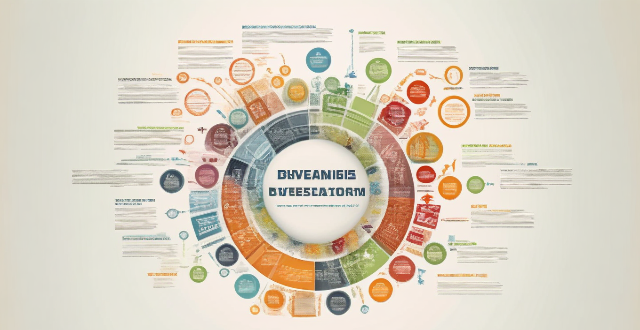
What is climate awareness and why is it important ?
Climate awareness is vital for driving individual and collective action towards a sustainable future, as it involves understanding the Earth's climate patterns and the impact of human activities. It prompts immediate action, informed decision-making, and fosters a sense of responsibility towards future generations. Climate awareness also has implications for health, economic stability, and biodiversity conservation. Furthermore, it aligns with the goals of sustainable development, empowers individuals to contribute positively to their communities, and is essential for advocating policy changes that support environmental protection.

How can individuals contribute to raising climate awareness ?
How Can Individuals Contribute to Raising Climate Awareness? Individuals can contribute significantly to raising climate awareness by educating themselves and others, engaging in community activities, advocating for change, changing personal habits, promoting sustainable lifestyle choices, investing in renewable energy, educating the next generation, volunteering, using their voice, and staying informed and up-to-date. By taking these actions, individuals can inspire others to join the effort to combat climate change.
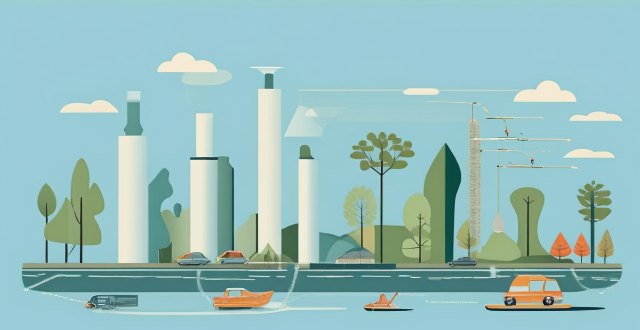
Can you explain the importance of continuous environmental monitoring ?
The article emphasizes the importance of continuous environmental monitoring, which involves regularly collecting data on various environmental factors such as air and water quality, soil conditions, and biodiversity. It helps identify potential issues early on, track long-term changes, support conservation efforts, enhance public awareness, and facilitate research and innovation. The author encourages everyone to stay informed about the state of their local environment and take action to protect it.

Can environmental legislation effectively reduce pollution ?
Environmental legislation has the potential to effectively reduce pollution, but its success depends on various factors such as enforcement and compliance, public awareness and participation, technological innovation, political will, international cooperation, and economic considerations. Strong regulatory bodies, education campaigns, investment in clean technology, government prioritization of environmental protection, global collaboration, and balancing environmental goals with economic development are all crucial for the effectiveness of environmental legislation. Achieving lasting improvements in environmental quality requires ongoing effort from all sectors of society.

How can social media be used to spread climate awareness ?
Social media can be a powerful tool for raising awareness about climate change and encouraging action. Here's how: - **Educational Content**: Share informational posts, host webinars, and invite experts to discuss climate change. - **Inspirational Stories**: Highlight success stories and profile environmental champions. - **Engagement Strategies**: Start challenges, interactive quizzes, and polls to involve followers in climate actions. - **Visual Impact**: Use compelling images, videos, and data visualization to illustrate the consequences of climate change. - **Collaboration**: Partner with organizations and influencers to co-create content and amplify messages. - **Feedback Loop**: Encourage interaction, conduct surveys, and tailor content based on audience feedback. - **Regular Updates**: Provide timely updates and create a dedicated hashtag for your climate awareness campaign. - **Positive Reinforcement**: Recognize participation and reward those who engage in climate initiatives.
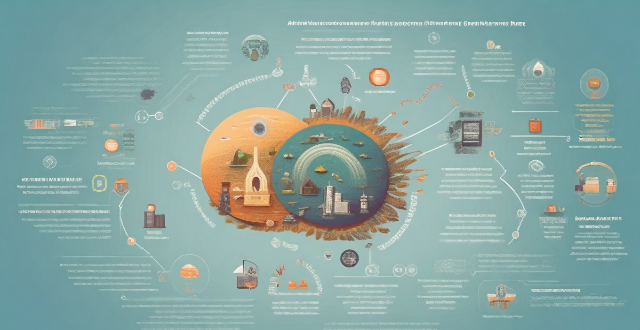
What role do education and awareness play in promoting citizen action on climate change ?
Education and awareness are crucial for promoting citizen action on climate change. They help individuals understand the science, develop skills, foster critical thinking, raise consciousness, mobilize public support, and promote behavioral change. Strategies for enhancing education and awareness include integrating climate change into curricula, community workshops, media campaigns, and partnerships with NGOs and corporations. Investing in education and awareness is essential for creating a more resilient and equitable future.
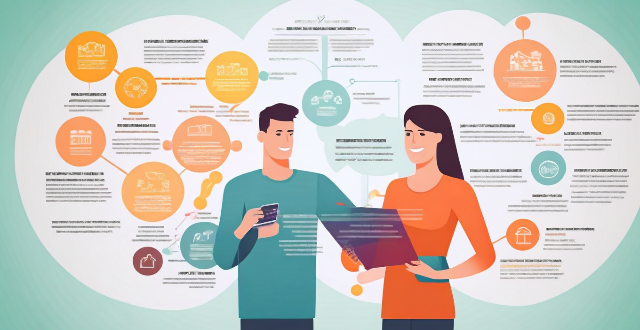
How can education and awareness-raising help promote both climate action and the SDGs ?
Education and awareness play a crucial role in promoting climate action and achieving the Sustainable Development Goals (SDGs). By providing individuals with knowledge and understanding of complex environmental issues, we can empower them to make informed decisions and take action towards a more sustainable future. Educational programs can promote environmental literacy, encourage active engagement, and build capacity for innovation that supports both climate action and the achievement of the SDGs. Strategies for promoting climate action and the SDGs through education and awareness include integrating sustainability into curricula, promoting interdisciplinary collaboration, partnering with community organizations, and utilizing technology and social media.
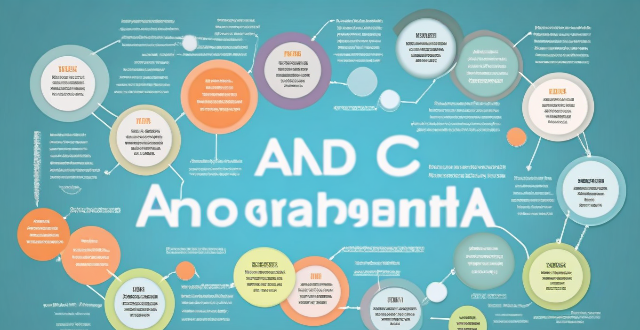
How can education and awareness programs help in promoting resource-efficient utilization ?
Education and awareness programs are crucial for promoting resource-efficient utilization. These programs can help individuals make informed decisions about their consumption habits and encourage them to adopt more sustainable practices. To maximize the impact of education and awareness programs, it is important to target different audiences, use multiple channels for dissemination, provide practical tips and strategies, and foster a sense of community and collective action towards sustainability goals. By doing so, these programs can contribute significantly to resource efficiency and promote sustainable development.

How do environmental subsidy policies influence consumer behavior ?
Environmental subsidy policies aim to promote sustainable practices and reduce environmental harm by offering financial incentives. These policies can encourage green consumption, lower the cost of eco-friendly products, and raise awareness about environmental issues. However, they also face challenges such as insufficient incentives, unintended consequences, and limited scope and impact. Therefore, careful design and evaluation are crucial for ensuring their effectiveness in promoting sustainable development.

How can education and awareness programs support climate adaptation ?
Education and awareness programs are crucial for climate adaptation, empowering individuals, communities, and policymakers with knowledge and skills to understand and respond to climate change impacts. These programs can raise public awareness, enhance decision-making capabilities, build resilience, promote sustainable practices, and facilitate behavioral change. Key actions for implementing effective education and awareness programs include curriculum integration, public campaigns, community workshops, and partnership initiatives.

How can education raise awareness about climate change and environmental issues ?
Education can play a crucial role in raising awareness about climate change and environmental issues by integrating these topics into the curriculum, promoting hands-on learning, encouraging critical thinking and problem-solving, fostering collaboration and partnerships, and implementing effective assessment and feedback mechanisms. By empowering students with knowledge and skills, educators can help them make informed decisions and take action to protect our planet.

How can we increase public awareness about climate change ?
Climate change is a global issue that requires increased public awareness to mitigate its effects and adapt to its consequences. Ways to raise awareness include integrating climate change education into school curriculums, organizing public workshops and seminars, encouraging news outlets to cover climate change stories more frequently, creating social media campaigns, organizing local events, producing public service announcements, and offering subsidies and incentives for eco-friendly practices. By working together, we can create a more informed and engaged public that is better equipped to tackle the challenges posed by climate change.

What impact does climate awareness have on global policies and decisions ?
Climate awareness has led to the implementation of various environmental, economic, and social policies at national and international levels. These policies aim to reduce greenhouse gas emissions, promote renewable energy sources, protect forests, and raise public awareness about climate change. Some examples include carbon taxes, renewable energy targets, forest protection laws, the Paris Agreement, the Kyoto Protocol, cap-and-trade systems, feed-in tariffs, tax credits for renewable energy projects, building codes, appliance standards, school curricula on climate change, and community workshops.
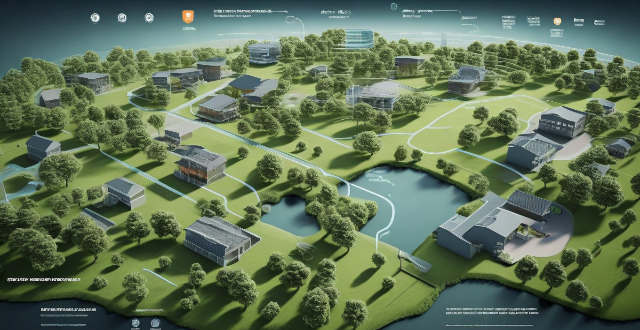
What role does technology play in improving environmental monitoring ?
Technology plays a pivotal role in enhancing environmental monitoring by enabling advanced data collection, analysis, visualization, reporting, and conservation efforts. Satellite imagery, drone surveillance, sensor networks, big data analytics, GIS, real-time reporting systems, and early warning technologies are among the key tools used. These advancements not only improve our understanding of environmental changes but also aid in managing resources and raising public awareness about ecological issues.

How has environmental legislation evolved over time ?
Environmental legislation has evolved over time, reflecting growing awareness of environmental issues. Early stages focused on preserving natural resources and conserving wildlife habitats, while post-World War II saw a shift towards pollution control through air and water quality regulations. The late 20th century introduced comprehensive environmental protection laws addressing multiple aspects of environmental degradation. Today's legislation prioritizes sustainable development and climate change mitigation, with a focus on public participation and transparency in decision-making processes.

Can using a carbon footprint calculator help reduce my environmental impact ?
Using a carbon footprint calculator can help individuals reduce their environmental impact by raising awareness, identifying areas for improvement, setting goals, tracking progress, and encouraging sustainable habits.

What is the role of individuals in addressing climate change and environmental degradation ?
This article discusses the role of individuals in combating climate change and environmental degradation. It highlights the cumulative impact of individual actions, their potential to inspire others, and the political pressure they can exert. The article provides practical steps individuals can take, such as reducing their carbon footprint, supporting renewable energy, waste reduction and recycling, advocating for environmental policies, and spreading awareness. It emphasizes that collective efforts can make a significant difference in creating a more sustainable future for our planet.
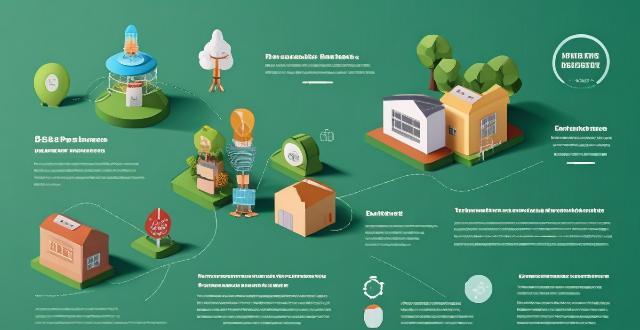
How can businesses incorporate sustainability practices and raise environmental awareness among consumers ?
Businesses can promote sustainability and raise environmental awareness among consumers by implementing green practices, engaging employees and stakeholders, and leveraging marketing and communications strategies. These include using renewable energy sources, managing waste responsibly, conserving water, offering sustainability workshops, forming green teams, collaborating with NGOs and suppliers, participating in community outreach, using eco-labels, developing green product lines, publishing sustainability reports, launching green social media campaigns, blogging about sustainability, and producing video content showcasing the company's commitment to sustainability.